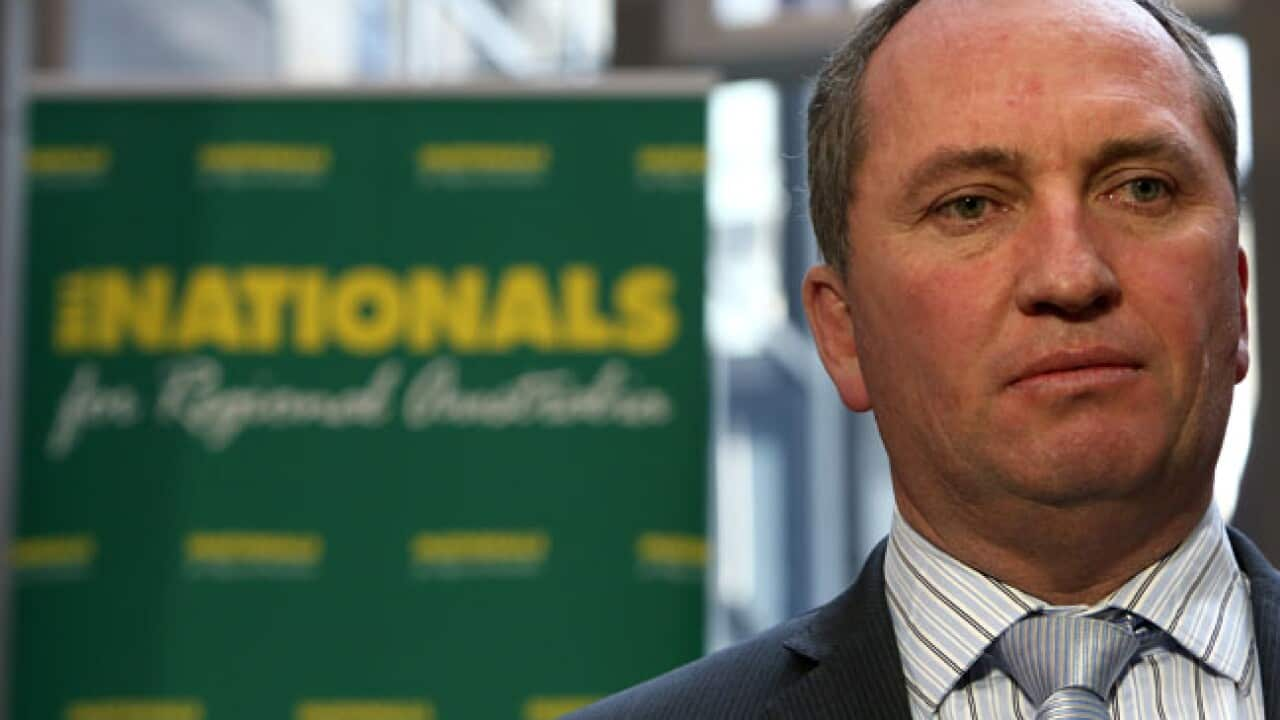The seat of , stretching from the Queensland border in the north, through the New England region and the north-west slopes and to the Liverpool plains in the south, would have been on everyone's radar but for of sitting member Tony Windsor. The seat of will now undoubtedly by the Nationals' Barnaby Joyce, but the question is: could Windsor ?
The seat is a creation of federation, switching hands between Protectionist and free trade parliamentarians in its early days, and, surprisingly, held by the ALP between 1906 and 1913. From the formation of the Country Party in the early 1920s to Windsor's , it was retained by the Country and then National Party.
It is a curious country seat "• typical in its reliance on agriculture but containing an unusual panoply of education institutions and lifestyles. To understand the peculiarity of the seat, Windsor's victory in 2001 – and the consolidation of his vote in , and – should be seen in a broader context.
From 1963 until 1998, the seat was held by the National Party's Ian Sinclair. During that long period Sinclair was able to build up a considerable personal following.
In 1996, the year that John Howard swept to office, Sinclair secured more than 60% of the primary vote. But the more typical primary vote for the National Party in the Sinclair days was of the order of 50% (and considerably less in the 1983 landslide to Bob Hawke and the ALP).
However, during the political disenchantment of the past 15 years or so – expressed in various ways, including the rise of independents – the seat morphed into something quite different from what it was.
The collapse in the National Party vote came in two stages. In 1998, when Sinclair vacated the seat, the Liberal Party contested it, drawing away more than 16% of the non-Labor primary vote.
Additionally, the National Party bled to One Nation, which recorded a primary vote of 13.5%. But that election was also interesting in the way that independent Graham Nuttall (later a staffer in Tony Windsor's office) recorded a respectable 9%. The Nationals retained the seat, but it was no longer “theirs”.
Windsor emerges
In 2001, Windsor, an independent switching from the NSW parliament, attracted 45% of the primary vote over the Nationals' 39%, the latter's vote mildly improving. With the Nationals formerly relying on a primary support base of 50%, Windsor was obviously drawing support from quarters beyond the Nationals' base.
Part of it was from those who voted Liberal "• and perhaps National "• in 1998; a little of it was from those who previously voted One Nation; and a lot came from those who had voted independent or Labor in 1998. What also makes the 2001 result remarkable is that Windsor achieved this momentum against the general swing to the Coalition in that election.
A second shift in the Nationals' vote came in 2004: some lost to a Liberal, but most lost to Windsor. Although Windsor had captured a hefty chunk of Nationals' support (about 22 percentage points of the primary vote), his support base was much broader, and included erstwhile Liberals, independent voters, one-time ALP voters, and a personal following. His primary vote was at more than 57%, and the preference flow pushed his two-party-preferred (2PP) figure to 71%.
What is interesting is that, in 2007, the Nationals' primary vote didn't recover even though no Liberal ran in that poll. By 2007, it stood at a little over 23%, a result roughly repeated in 2010. Windsor, meanwhile, further consolidated his hold, and in 2007 and 2010 attracted primary votes of nearly 62% and 2PP votes of 74% and 72%.
It's possible the Nationals could have taken the seat from Windsor in 2013, but not likely. First, internal polling reportedly gave in the Windsor camp. But, more importantly, and based on what we know from the figures presented here, the Nationals would had to have clawed back well over half the primary vote it had lost to Windsor to have given them a workable primary base of 40% or more. And it needed at least that much to have any show because, from 2001, it could never achieve a 2PP result more than a few points above its primary vote.
In truth, it would have needed considerably more. The Nationals needed to double their primary vote by wresting something very close to the 25% of former Nationals support now held by Windsor. As with so many other things about Tony Windsor, we can believe him when he says he was not afraid of a fight.
Tim Battin does not work for, consult to, own shares in or receive funding from any company or organisation that would benefit from this article, and has no relevant affiliations.










